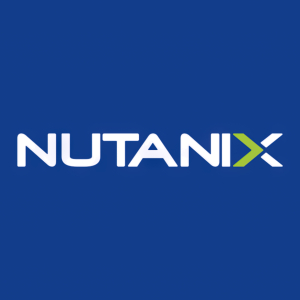Nutanix Study Finds Adoption of GenAI and Containers in the Healthcare Sector Has Accelerated, But IT Infrastructure Modernization to Support it Lags Behind
Rhea-AI Summary
Nutanix (NASDAQ: NTNX) has released its seventh annual Healthcare Enterprise Cloud Index survey, revealing significant trends in healthcare technology adoption. The study found that 99% of healthcare organizations are currently using GenAI applications, leading all other industries in adoption rate.
However, the research highlighted critical challenges, with 96% of respondents indicating their current data security and governance measures are insufficient for full GenAI implementation at scale. The top challenges identified include integration with existing IT infrastructure (79%), healthcare data silos (65%), and development challenges with cloud native applications and containers (59%).
The study also revealed that 99% of healthcare organizations are in the process of containerizing applications, with 92% reporting benefits from adopting cloud native applications. Despite high adoption rates of GenAI, organizations face significant challenges in scaling these workloads from development to production, primarily due to infrastructure integration issues.
[ "99% of healthcare organizations are already leveraging GenAI applications/workloads", "92% of healthcare respondents report benefits from adopting cloud native applications/containers", "99% of healthcare organizations are implementing application containerization", "High adoption of GenAI-based customer support and code generation solutions" ]Positive
- None.
Negative
- 96% of organizations report insufficient data security and governance measures for GenAI
- 99% face challenges when scaling GenAI workloads from development to production
- 79% report difficulties integrating GenAI with existing IT infrastructure
- 65% struggle with healthcare data silos
News Market Reaction 1 Alert
On the day this news was published, NTNX declined 1.64%, reflecting a mild negative market reaction.
Data tracked by StockTitan Argus on the day of publication.
Modernization of legacy IT systems remains critical to meeting data security, privacy, and scalability demands for healthcare organizations
SAN JOSE, Calif., July 01, 2025 (GLOBE NEWSWIRE) -- Nutanix (NASDAQ: NTNX), a leader in hybrid multicloud computing, announced the findings of its seventh annual global Healthcare Enterprise Cloud Index (ECI) survey and research report, which measures enterprise progress with cloud adoption in the industry. The research showed that
“In healthcare, every decision we make has a direct impact on patient outcomes - including how we evolve our technology stack,” said Jon Edwards, Director IS Infrastructure Engineering at Legacy Health. “We took a close look at how to integrate GenAI responsibly, and that meant investing in infrastructure that supports long-term innovation without compromising on data privacy or security. We’re committed to modernizing our systems to deliver better care, drive efficiency, and uphold the trust that patients place in us.”
This year’s report revealed that healthcare leaders are adopting GenAI at record rates while concerns remain. The number one issue flagged by healthcare leaders is the ability to integrate it with existing IT infrastructure (
“While healthcare has typically been slower to adopt new technologies, we’ve seen a significant uptick in the adoption of GenAI, much of this likely due to the ease of access to GenAI applications and tools,” said Scott Ragsdale, Senior Director, Sales - Healthcare & SLED at Nutanix. “Even with such large adoption rates by organizations, there continue to be concerns given the importance of protecting healthcare data. Although all organizations surveyed are using GenAI in some capacity, we’ll likely see more widespread adoption within those organizations as concerns around privacy and security are resolved.”
Healthcare survey respondents were asked about GenAI adoptions and trends, Kubernetes and containers, how they’re running business and mission critical applications today, and where they plan to run them in the future. Key findings from this year’s report include:
- GenAI solution adoption and deployment across healthcare will necessitate a more comprehensive approach to data security. Healthcare respondents indicate a significant amount of work needs to be done to improve the foundational levels of data security/governance required to support GenAI solution implementation and success. The No. 1 challenge faced by healthcare organizations when it comes to leveraging or expanding utilization of GenAI is privacy and security concerns of using large language models (LLMs) with sensitive company data. Furthermore,
96% of healthcare respondents agree that their organization could be doing more to secure their GenAI models and applications. Improving data security and governance at the scale needed to support emerging GenAI workloads will be a long-term challenge and priority for many healthcare organizations. - Prioritize infrastructure modernization to support GenAI at scale across healthcare organizations. Running modern applications at enterprise scale requires infrastructure solutions that can support the necessary requirements for complex data security, data integrity and resilience. Unfortunately,
99% of healthcare respondents admit they face challenges when scaling GenAI workloads from development to production – with the No. 1 issue being integration with existing IT infrastructure. For this reason, we believe it is imperative that healthcare IT decision-makers prioritize infrastructure investments and modernization as a key enabling component of GenAI initiatives. - GenAI solution adoption in the healthcare sector continues at a rapid pace, but there are still challenges to overcome. When it comes to GenAI adoption, healthcare metrics are excellent, with
99% of industry respondents saying their organization is leveraging GenAI applications/workloads today. Most healthcare organizations believe GenAI solutions will help improve levels of productivity, automation, and efficiency. - Meanwhile, real-world GenAI use cases across healthcare segments gravitate towards GenAI-based customer support and experience solutions (e.g., chatbots), and code generation and code co-pilots. However, healthcare organizations also note a range of challenges and potential hindrances regarding GenAI solution development and deployment, including patient data security and privacy, scalability, and complexity.
- Application containerization and Kubernetes® deployments are expanding across the healthcare industry. Container-based infrastructure and application development has the potential to allow organizations to deliver seamless, secure access to patient and business data across hybrid and multicloud environments. Application containerization is pervasive across industry sectors and is set to expand in adoption across healthcare as well, with
99% of industry respondents saying their organization is at least in the process of containerizing applications.This trend may be driven by the fact that92% of healthcare respondents agree their organization benefits from adopting cloud native applications/containers. These findings suggest that the majority of IT decision-makers in healthcare will be considering how containerization fits into expansion strategies for new and existing workloads.
For the seventh consecutive year, Nutanix commissioned a global research study to learn about the state of global enterprise cloud deployments, application containerization trends, and GenAI application adoption. In the Fall of 2024, U.K. researcher Vanson Bourne surveyed 1,500 IT and DevOps/Platform Engineering decision-makers around the world. The respondent base spanned multiple industries, business sizes, and geographies, including North and South America; Europe, the Middle East and Africa (EMEA); and Asia-Pacific-Japan (APJ) region.
To learn more about the report and findings, please download the full Healthcare Nutanix Enterprise Cloud Index, here and read the blog here.
About Nutanix
Nutanix is a global leader in cloud software, offering organizations a single platform for running applications and managing data, anywhere. With Nutanix, companies can reduce complexity and simplify operations, freeing them to focus on their business outcomes. Building on its legacy as the pioneer of hyperconverged infrastructure, Nutanix is trusted by companies worldwide to power hybrid multicloud environments consistently, simply, and cost-effectively. Learn more at www.nutanix.com or follow us on social media @nutanix.
© 2025 Nutanix, Inc. All rights reserved. Nutanix, the Nutanix logo, and all Nutanix product and service names mentioned herein are registered trademarks or unregistered trademarks of Nutanix, Inc. (“Nutanix”) in the United States and other countries. Other brand names or marks mentioned herein are for identification purposes only and may be the trademarks of their respective holder(s). This press release is for informational purposes only and nothing herein constitutes a warranty or other binding commitment by Nutanix. This release may contain express and implied forward-looking statements, which are not historical facts and are instead based on Nutanix’s current expectations, estimates and beliefs. The accuracy of such statements involves risks and uncertainties and depends upon future events, including those that may be beyond Nutanix’s control, and actual results may differ materially and adversely from those anticipated or implied by such statements. Any forward-looking statements included herein speak only as of the date hereof and, except as required by law, Nutanix assumes no obligation to update or otherwise revise any of such forward-looking statements to reflect subsequent events or circumstances.

Media Contact: Gabrielle Moynan pr@nutanix.com







